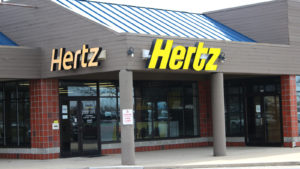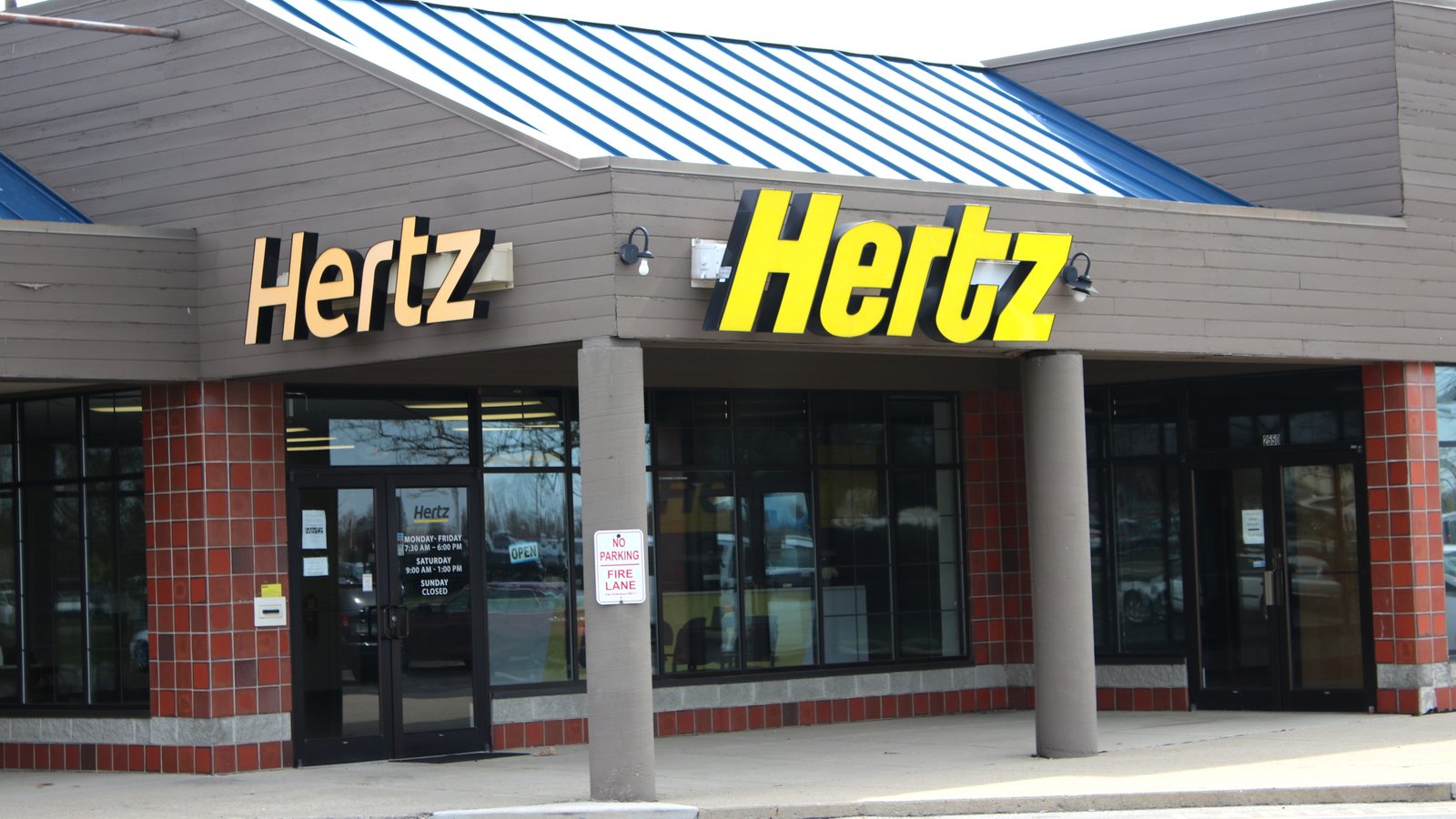The history of Hertz Global Holdings (NYSE:HTZ) is an interesting one. Currently in the middle of bankruptcy proceedings, HTZ stock is on the verge of dropping below $1 for the first time since June.

If you want to know how InvestorPlace contributors feel about Hertz stock, one only needs to go to the Hertz page at InvestorPlace’s website. Louis Navellier gives it a failing grade suggesting it’s a strong sell.
Ya think?
In mid-June, I recommended that investors avoid stocks of bankrupt companies such as Hertz and JCPenney (OTCMKTS:JCPNQ).
“I find it hard to believe that Carl Icahn, a billionaire 15 times over, would take a loss of nearly $1.6 billion by selling his Hertz shares for 72 cents each if he felt there was a chance he could get more than that for the stock he owned,” I wrote.
But back to Hertz’s history.
A Couple of the Big Three Owned Hertz
General Motors (NYSE:GM) was the first of Detroit’s Big Three to own Hertz. It bought the car rental business in 1926 from John Hertz. In 1953, Hertz’s Omnibus Corporation repurchased Hertz.
The next year, it became a public company and remained on the New York Stock Exchange until 1967 when the Radio Corporation of America (RCA) bought Hertz in a stock swap. RCA held on to Hertz until 1985 when it was sold to UAL, the owners of United Airlines (NASDAQ:UAL) and Westin Hotels.
In 1987, Hertz was sold to Ford (NYSE:F) for $1.3 billion. Ford owned 80%, while Hertz management owned the rest. Ford bought the remainder in 1994. In September 2005, Ford agreed to sell Hertz for $15 billion, including debt.
Three private equity firms — Clayton Dubilier & Rice, Carlyle Group (NASDAQ:CG), and Merrill Lynch Global Private Equity — bought the car rental business. Less than a year later, the three firms took Hertz public, selling 88.2 million shares of its stock for $1.43 billion in gross proceeds.
It’s been a public company ever since reaching an all-time high above $100 in August 2014. And that’s where the headline begins to make some sense.
HTZ Stock Was Doomed With So Many CEOs
On July 19, 2006, Hertz hired Mark Frissora as CEO of the company. Frissora had been the chief executive for Tenneco (NYSE:TEN). Frissora served until September 2014 when an accounting scandal forced him out of the top job after eight years. Brian McDonald replaced him on an interim basis. McDonald was CEO of Hertz Equipment Rental at the time.
In November 2014, Hertz hired John Tague as CEO. Barely two years later, on Jan. 2, 2017, Tague retired as CEO, and Kathryn Marinello (backed by Icahn) took the helm, the third CEO in less than two years.
Finally, Marinello resigned in May after 3.5 years in the top job. Paul Stone replaced her. He joined the company in March 2018 after executive stints at both Walmart (NYSE:WMT) and Cabela’s.
Frissora. McDonald. Tague. Marinello. Stone. That’s five CEOs in less than six years. Is it any wonder that Hertz is undergoing bankruptcy proceedings?
By comparison, Target (NYSE:TGT) CEO Brian Cornell was hired (Aug. 12, 2014) around the same time Mark Frissora stepped down, beginning the parade of chief executives. Since Cornell’s become CEO, TGT stock is up 173% compared to 78% over the same period for the S&P 500.
The Bottom Line on Hertz
The fact that we [InvestorPlace contributors] continue to write about HTZ stock suggests there’s a level of interest in the car rental company that’s above average. I myself can’t understand the fascination with bankrupt companies and their stocks, but there’s obviously a demand.
The private equity firms that bought Hertz in 2006 assumed a company with $10 billion in debt. By 2013, it had ballooned to $16 billion, and by the time it filed for bankruptcy in May, its total debt had risen to $24.4 billion.
Clearly, the debt didn’t help its cause, but in the end, turning as many CEOs as it did over the course of just six years, HTZ stock has demonstrated why stability in the top ranks is an important part of a company’s ability to have success.
Hertz doesn’t need another CEO. It needs a miracle. One, I doubt, is coming.
On the date of publication, Will Ashworth did not have (either directly or indirectly) any positions in the securities mentioned in this article.
Will Ashworth has written about investments full-time since 2008. Publications where he’s appeared include InvestorPlace, The Motley Fool Canada, Investopedia, Kiplinger, and several others in both the U.S. and Canada. He particularly enjoys creating model portfolios that stand the test of time. He lives in Halifax, Nova Scotia. At the time of this writing Will Ashworth did not hold a position in any of the aforementioned securities.
